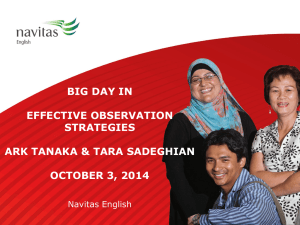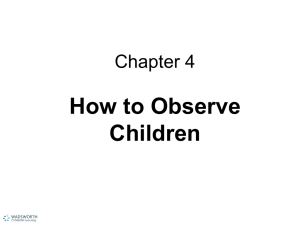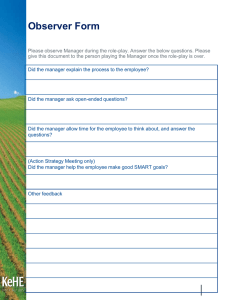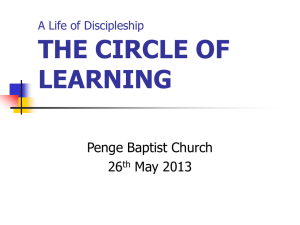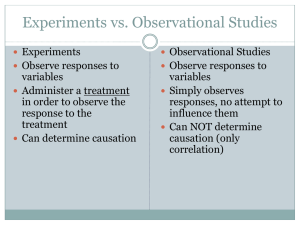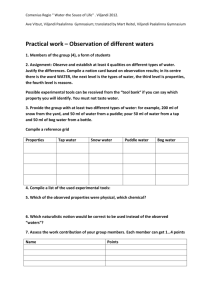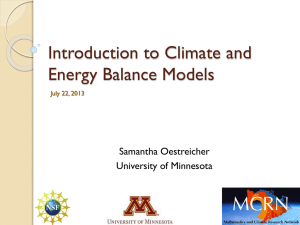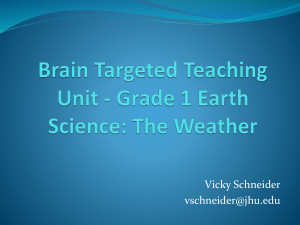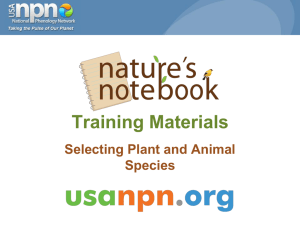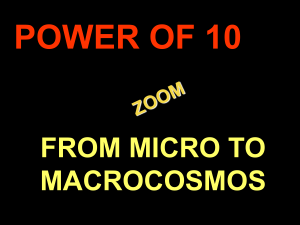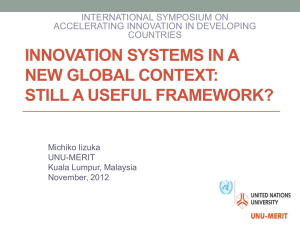Action researcher
advertisement
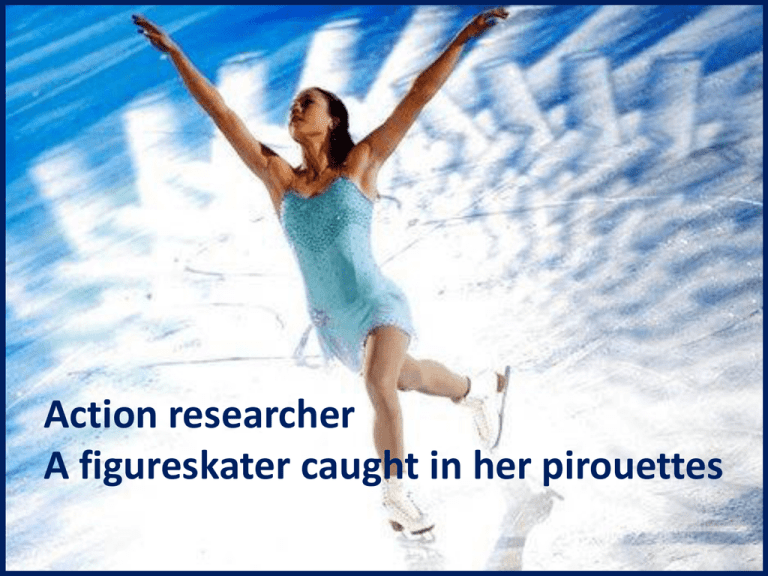
Action researcher A figureskater caught in her pirouettes The Heritage of Kurt Lewin effective.leadershipdevelopment.edu.au/ .../ www.change-management-toolbook.com/mod/book/p.. Dialectical relationship between retrospective explanation/understanding and prospective action What has been done and what ought to be done otherwise? RECONSTRUTIVE DISCOURSE Among participants PRACTICE Reflect CONSTRUCTIVE Plan interaction Observe Act In the social context Carr & Kemmis 1986, 185-187 MARX revolutionizing practice HABERMAS conduct of political struggle FREIRE problematization – conscientization - praxis Reflecting on history Preparing for future Rationalistic Thinking Social action Reflect Plan Observe Act Empiric Pragmatic Heikkinen & Huttunen 2008 Steps in action research Ferrance 2009, 9 Action research cycles Progressive problemsolving with action research The textbook ideal Action design Building the picture Understanding what and how events/actions occur Clarifying a detailed picture of the context Getting insight into the phenomenon/issue Evaluating REFLECT the outcomes of actions, the engagement of those involved, Interpreting and analyzing OBSERVE PLAN the effect of resources in use The priorities and the ways of formulating problems ACT actions, processes and contexts in order to clarify the actors understanding and for identifying priorities Resolving the problems Formulating practical solutions to the problems that have been prioritized Engaging people and mobilizing resources Stringer 1999 Action research in action Rich co-description of the Phenomenon, Situation and Context in which it occurs Identification and definition of the problem or challenge Historical accounts Systematic co-evaluation and reflection of the actions, outcomes and effectsin the light of the conceptualization of the challenge and the resources REFLECT An inventory of different/differing experiences and understandings Conceptualization of P, S, and C on the basis of literature, research and negotiations OBSERVE PLAN Organization and preliminary analysis of the documented actions Spontaneous discussions and orientating meetings ACT A co-formulation of an aim and an action plan in relation to resources, actors and expected outcomes A plan for documenting actions and outcomes Implementation of the plan Observation and documentation according to the plans Ferrance 2009 Methods for gathering information Methods for meaningmaking and interpretation/ cogeneration REFLECT Methods for organizing and analyzing information OBSERVE PLAN Methods for communication ACT Methods for meaningmaking and interpretation/ cogeneration Methods for gathering information Methods for and in Action Research Methods for gathering information Instantly: Observations, interviews/conversations, surveys, existing documents, documenting everyday reality (photos, videos ..) Long term: Diaries, (b)loggs, portfolios, memos, meeting loggs, Wikis Methods for organizing and analyzing information Everyday and scientific methods for analysis of information/data Theoretical frameworks Methods for meaningmaking and interpretation/cogeneration Mind maps, conceptual maps, narratives/metaphors, dramas, role plays Theoretical frameworks Methods for communication dialogues, work-conferences, dialogue-conferences, guidance/tutoring, Wikis Reporting Action Research Reporting Systematic inquiry into human being and acting Thick, rich descriptions Actors voices, experiences Negoations Alternative plans Continuous feedback (documentation) Thick, rich descriptions Actors voices, experiences Negoations Alternative plans Continuous feedback (documentation) Thick, rich descriptions Actors voices, experiences Negotiations Alternative plans Continuous feedback (documentation) Thick, rich descriptions Actors voices, experiences Negotiations Alternative plans Continuous feedback (documentation) Action research quality assurance REFLECT OBSERVE PLAN REFLECT REFLECT ACT OBSERVE PLAN REFLECT ACT OBSERVE PLAN ACT REFLECT OBSERVE PLAN OBSERVE PLAN ACT REFLECT OBSERVE PLAN ACT ACT REFLECT OBSERVE PLAN ACT REFLECT OBSERVE PLAN ACT Improved Action Collaborative Re Search Action Action Insiders Participants Actors Collaborative Re Search Action Collaborative Re Search Outsiders Action Collaborative Re Search Researchers Critical friends ORGANIZATIONAL LEARNING CHANGE, RECONSTRUCT DEVELOP ACTIONS STREAMLINE CONSEQUENCES RESULTS RULES, PROCESSES, STRATEGIES EXPERIENCES, INSIGHTS, CONCEPTIONS ASSUMPTIONS, VALUES, GOALS, PRINCIPLES Single loop – double loop – deutero learning A framework for analyzing AR practices Zeicher and Somekh 2009 , 10-11 The purposes for conducting (understanding, improving, knowledge-production) The contextual conditions The philosophy towards teachers and their learning The sponsors and stakeholders The incentives for doing action research Forms of inquiry Relationship to other kind of research Ways of representing action research to others Types of Educational Action Research Ferrance 2009 Widening circles The Public arena School district Local community School-wide AR The arena of interaction ACT Collegial-Collaborative AR On formal – informal basis The Private arena REFLECT Teacher-as-researcher In a classroom OBSERVE Subject Curriculum Instruction Assessment Departmental policy Communication – collaboration Leadership Responses to policy development Community development/action PLAN The Reality The reality The function and aim of VET Basic training <–> specialization The autonomy and freedom of the teacher Increased <–> always been ample Leadership and administration A need of explicit rules and directions, and a strong leadership <–> teachers and the departments has to have the possibility of acting freely and with a flexibility The planning and execution of the renewal Too abstract and general <–> too detailed and precise The new organization(al model) Functioning well <–> a mess Teachers view on didactics Interested in <–> useless If you want to get confused and loose the nights´ rest get involved in action research in a school in a middle of a transformation process The beauty of chaos Russell Ackoff’s (1999) term ‘messes’ sums up one of the ways a great many action researchers differ from their conventional social science colleagues. Messes are complex, multi-dimensional, intractable, dynamic problems that can only be partially addressed and partially resolved. Yet most action researchers have disciplined themselves to believe that messes can be attractive and even exciting. We try not to avoid messy situations despite knowing that we do not have the ‘magic bullet’ because we believe that, together with legitimate community stakeholders, we can do something to improve the situation. Pain, joy, fear, bravery, love, rage – all are present in our action research lives. Brydon-Miller, Greenwood & Maguire 2003, 21-22 The action researcher Raimo on school in school (Kuula 1999, 69-70) What is a certain teachers problem about teaching lessons longer than 45 minutes about? It is hardly just about the inability of this teacher to implement the renewal in question. The reasons might be found in the teaching cultures, the historical development or the hassles between the teachers. The problem does not just appear as a single technical problem, rather managing of it requires paying attention of the school (education) as a whole. If I am not, as a action researcher, capable of grasping the totality, I will get in trouble. And consequently, I can give up or I can seclude myself into a majestic desolation and become a martyr. Our dependence on language Schools exist in and by language Vocabulary S Domain S Research is conducted in and by language Vocabulary D Domain D ACTION RESEARCH as conversational research co-operative inquiry co-creation of a local theory The Scandinavian model of participatory action research Elden and Levin (1991, 130) INSIDERS IMPLICIT, INDIVIDUAL, FRAGMENTED ACTION ”THEORY” OUTSIDERS THEORY BASED ACTION ”THEORY COMING TOGETHER DIALOGUE - MUTUALITY LANGUAGE DEPENDENCY LOCAL THEORY NEW SHARED FRAMEWORK TESTING NEW THEORY Teachers experiential action-related knowledge Teachers acting based on unrecognised habits and coercion Scientific THEORY Different rationalities Descriptive-analytical vs. Normative-prescriptive statements METAPHOR Figurative use of language Analogy/comparison between two domains Tenor Vehicle Action researcher as a critical friend LOOPS AND CYCLES THE ROOTMETAPHORS IN ACTION RESEARCH
